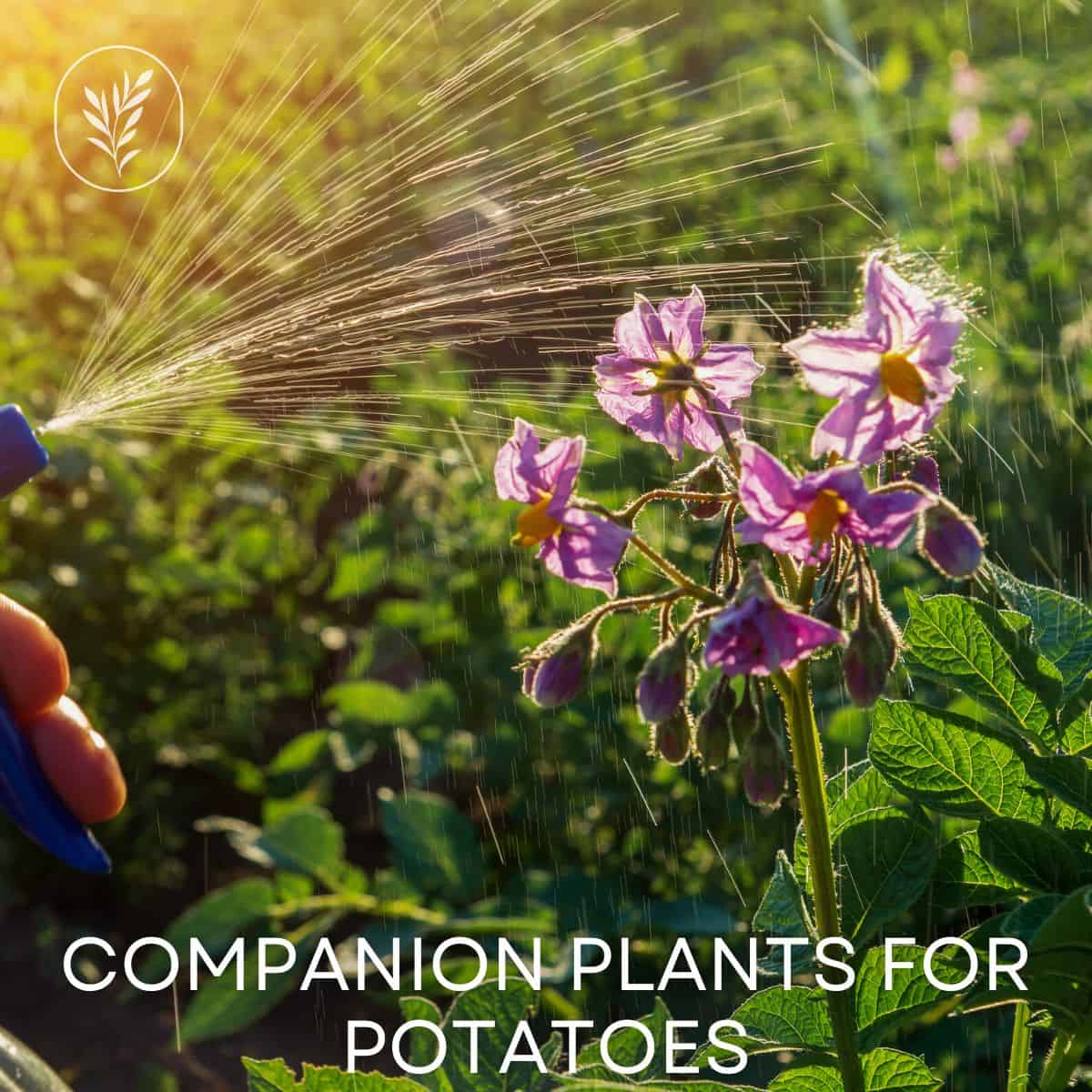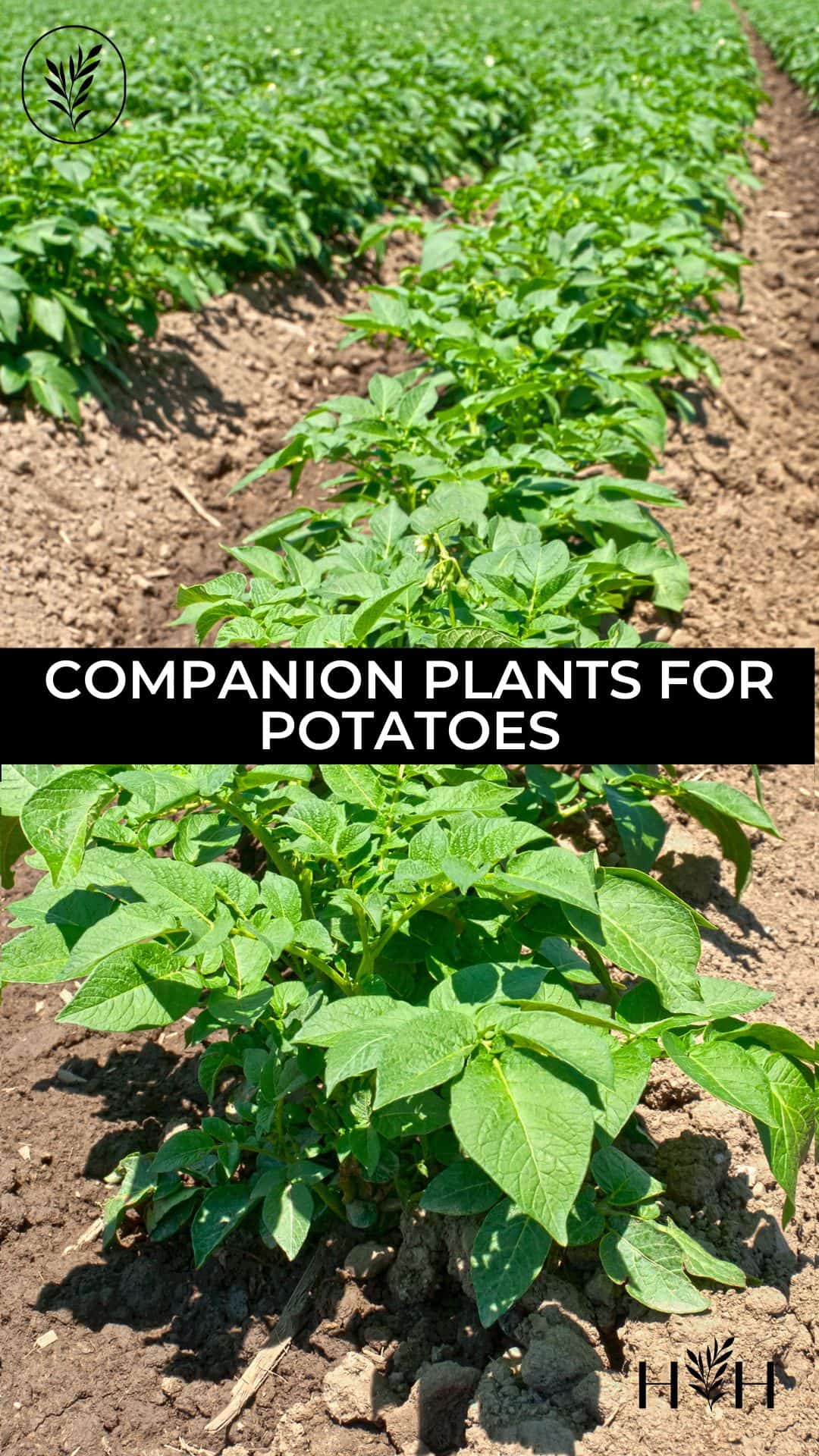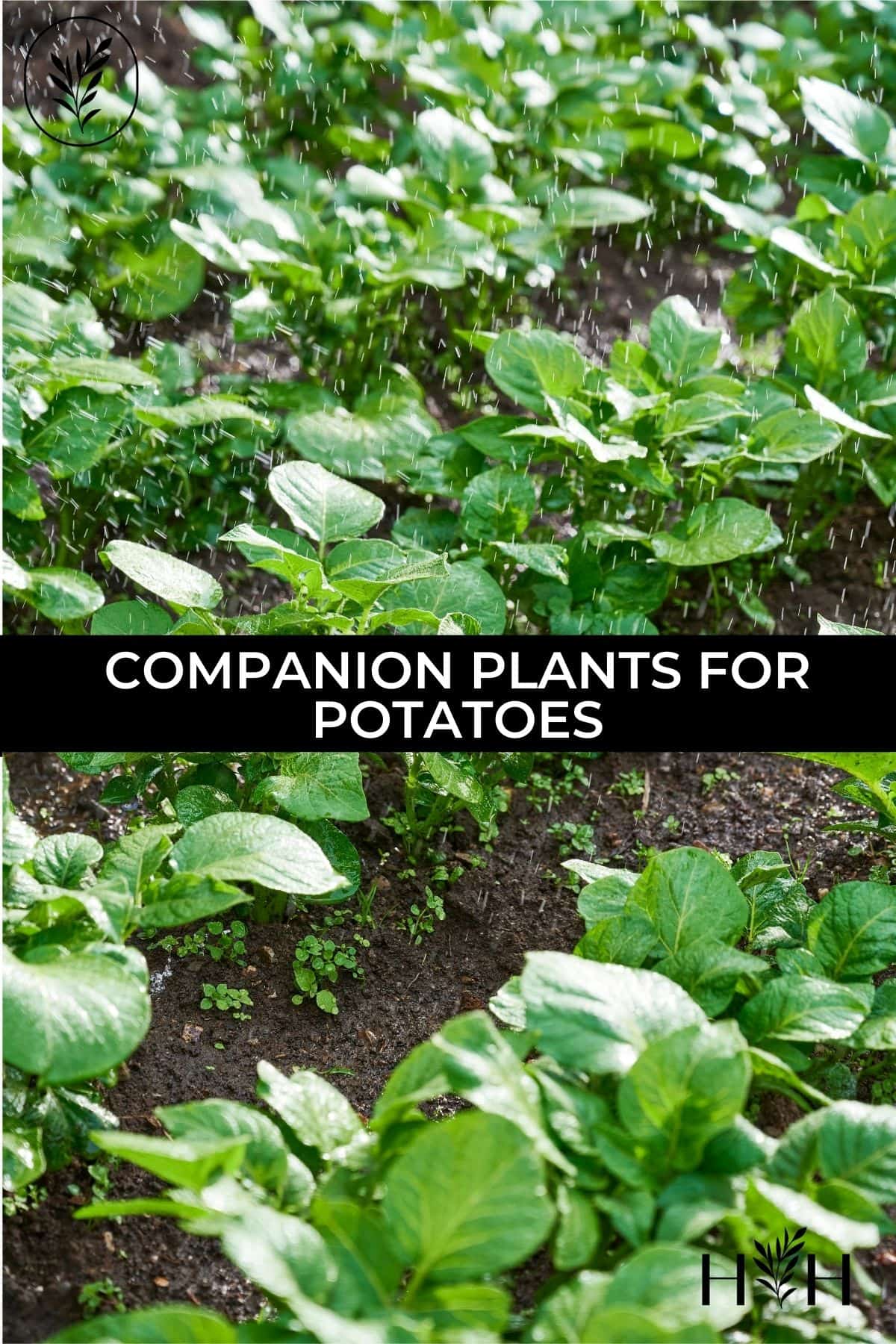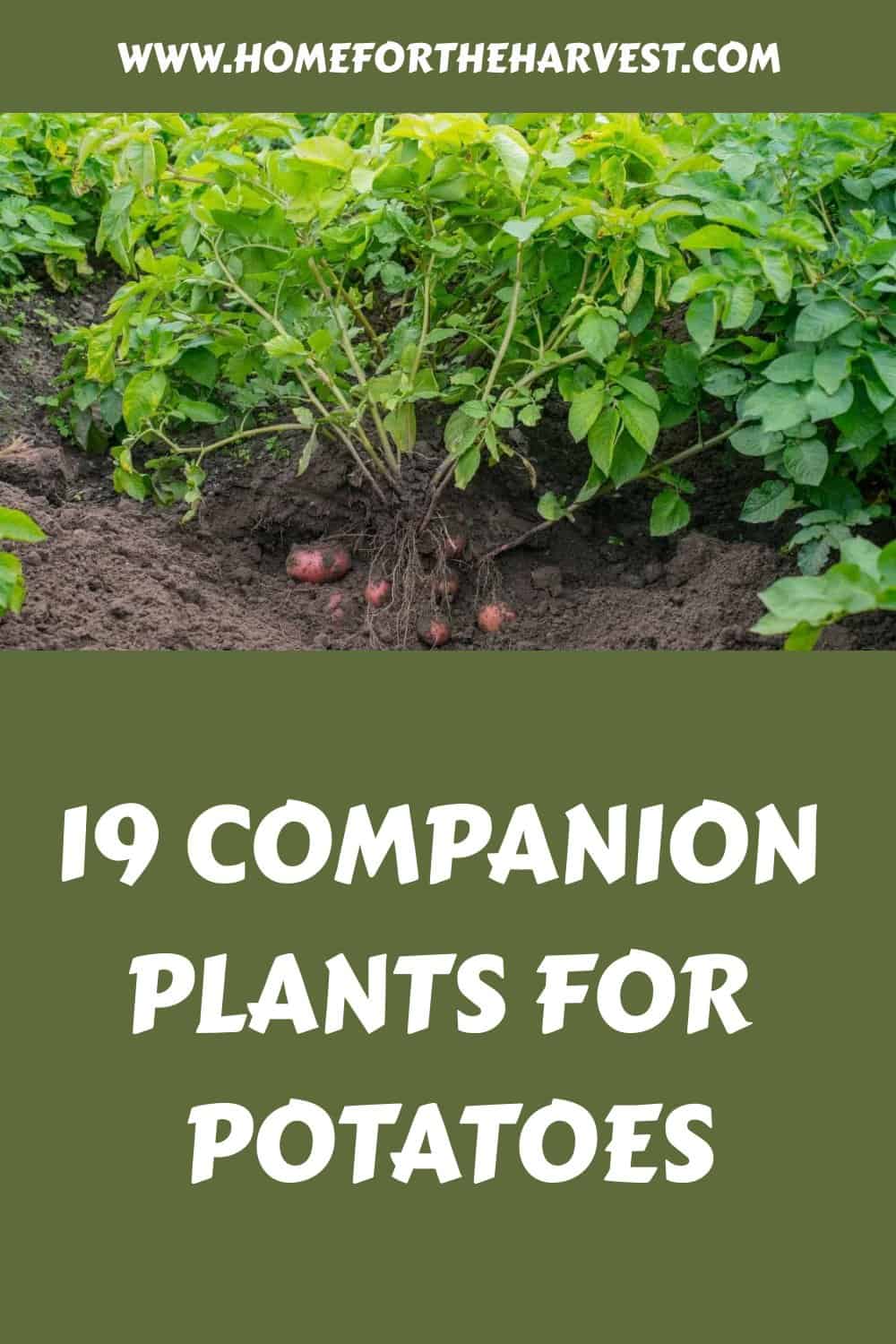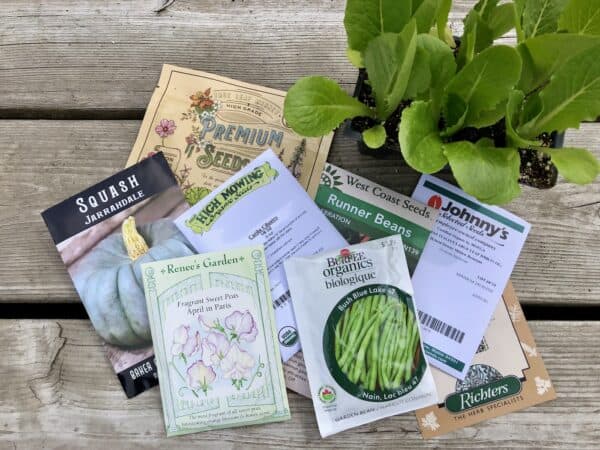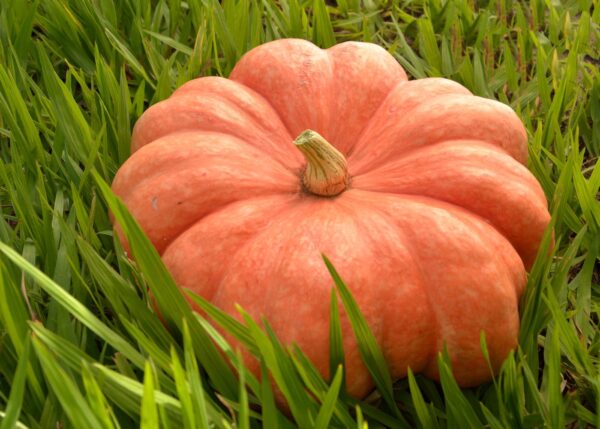Companion plants are like friends – they’re there to support you. In addition, companion plants deter pests and provide nutrients to the soil, keeping the surrounding plants healthy.
The best companion plants for potatoes include culinary herbs like chives, thyme, and basil, vegetables like onion, beans, celery, and corn, and flowers like nasturtium and marigold. Avoid planting potatoes nearby brassicas (cabbage family), carrots, and squash.
If you want to know more about the best companion plants for potato plants, keep reading. This article will cover the perfect and not-so-perfect companion plants for potato plants.
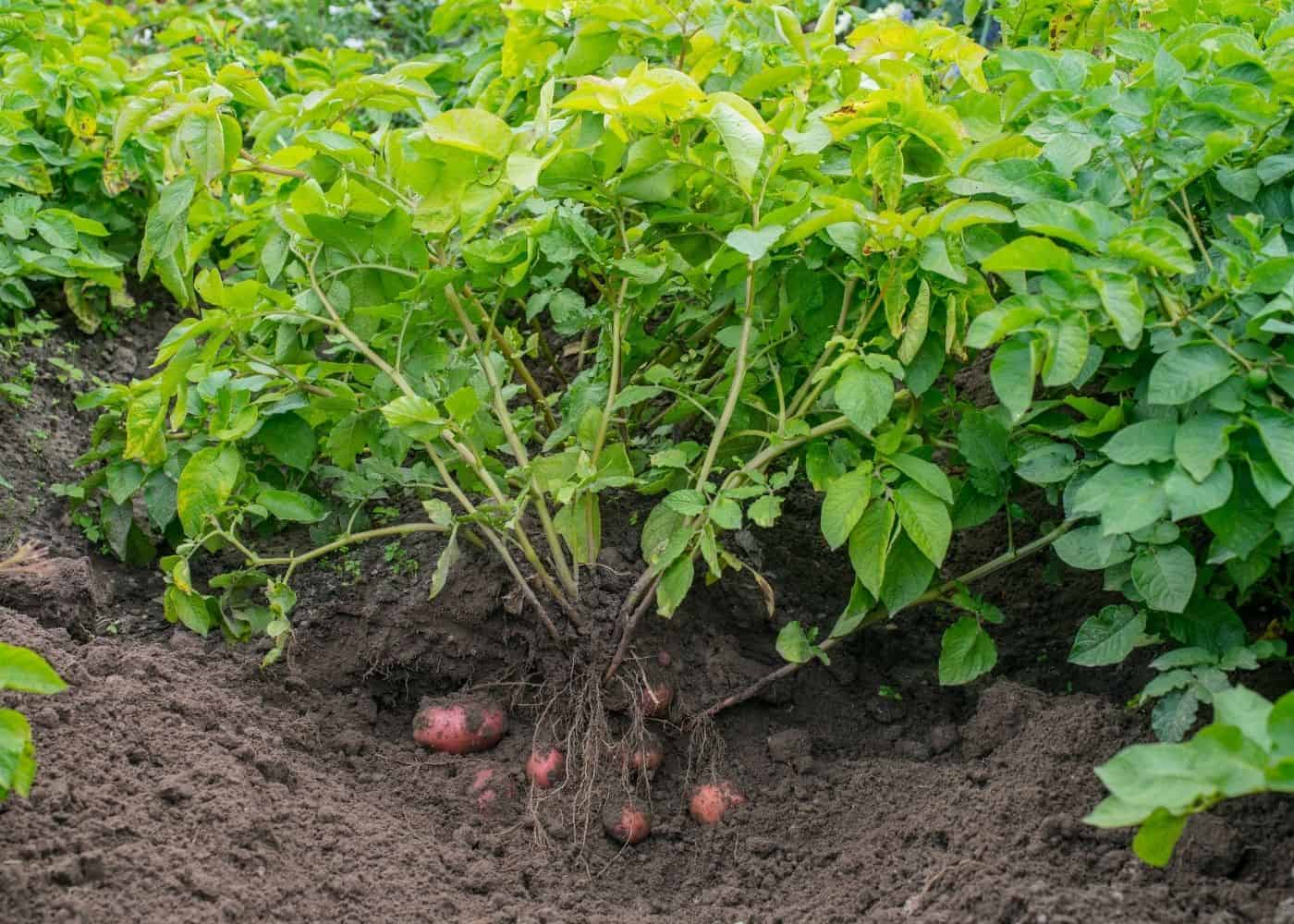
Companion plants for potatoes
Potatoes are also known as Solanum Tuberosum, which are members of the Solanaceae family. The Solanaceae family is known as nightshades and contains plants like tomatoes, peppers, and eggplants. Potatoes and their relatives are easy to grow and generally well-suited to home gardens.
These plants benefit from companion plants such as cilantro and basil. On the other hand, cabbage, brussels sprouts, and cauliflower (brassica family) can stunt the growth of potatoes. West Virginia University also comments that companion planting can be beneficial for soil health, space-saving, and insect management.
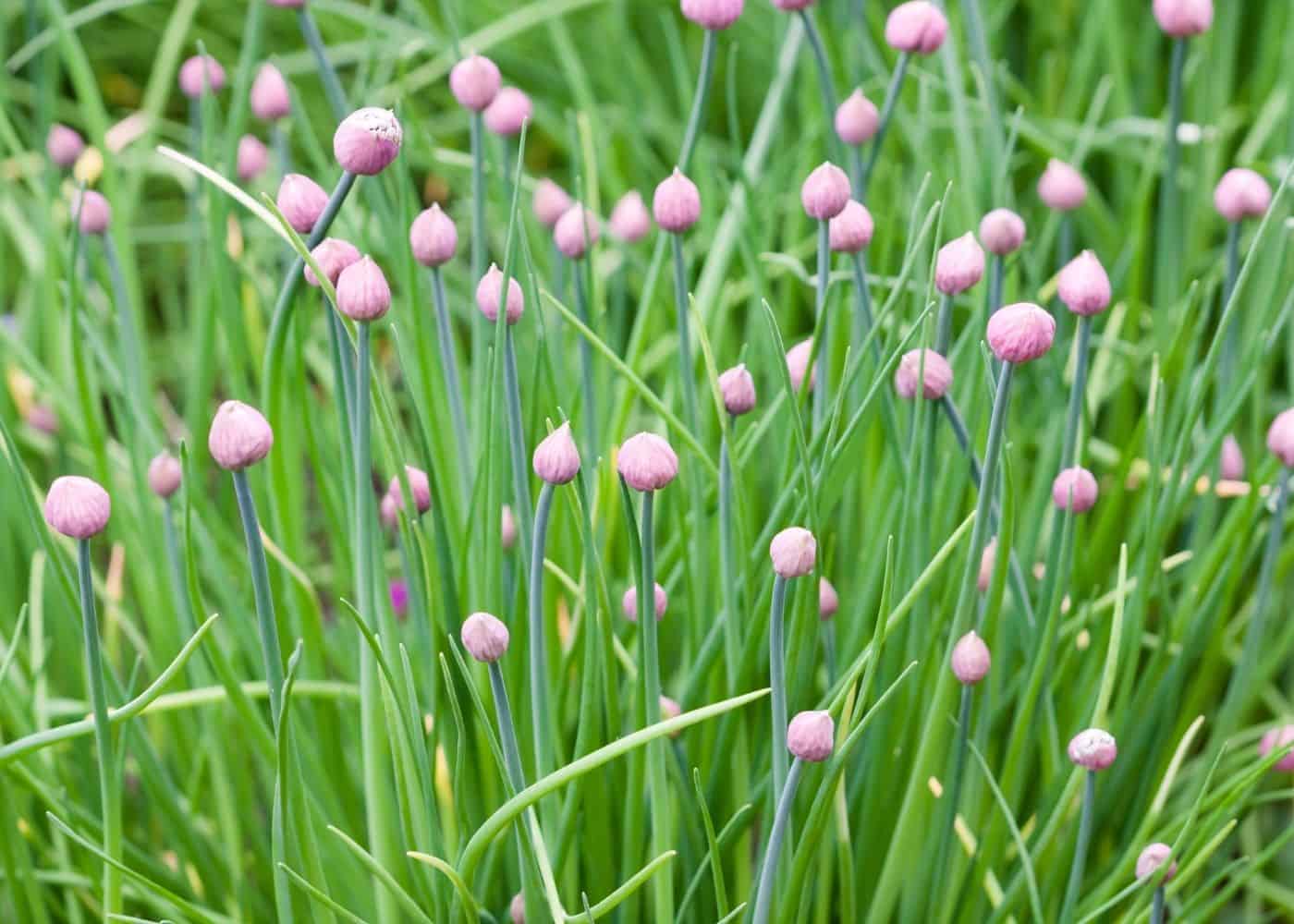
1. Chives
Chives are an excellent companion plant for potato plants because they attract pollinating bees. Furthermore, chives can improve the flavor of potatoes and perhaps even increase the number of potatoes produced by the plant. And when you’re ready for a delicious baked potato, you don’t have to reach too far to grab some chives as a fresh topping!
Chives are one of the easiest herbs to grow from seed, and it’s also usually quite simple to find baby chive plants at the garden center. Choose from classic common culinary chives to specialty types like garlic chives or Allion chives.
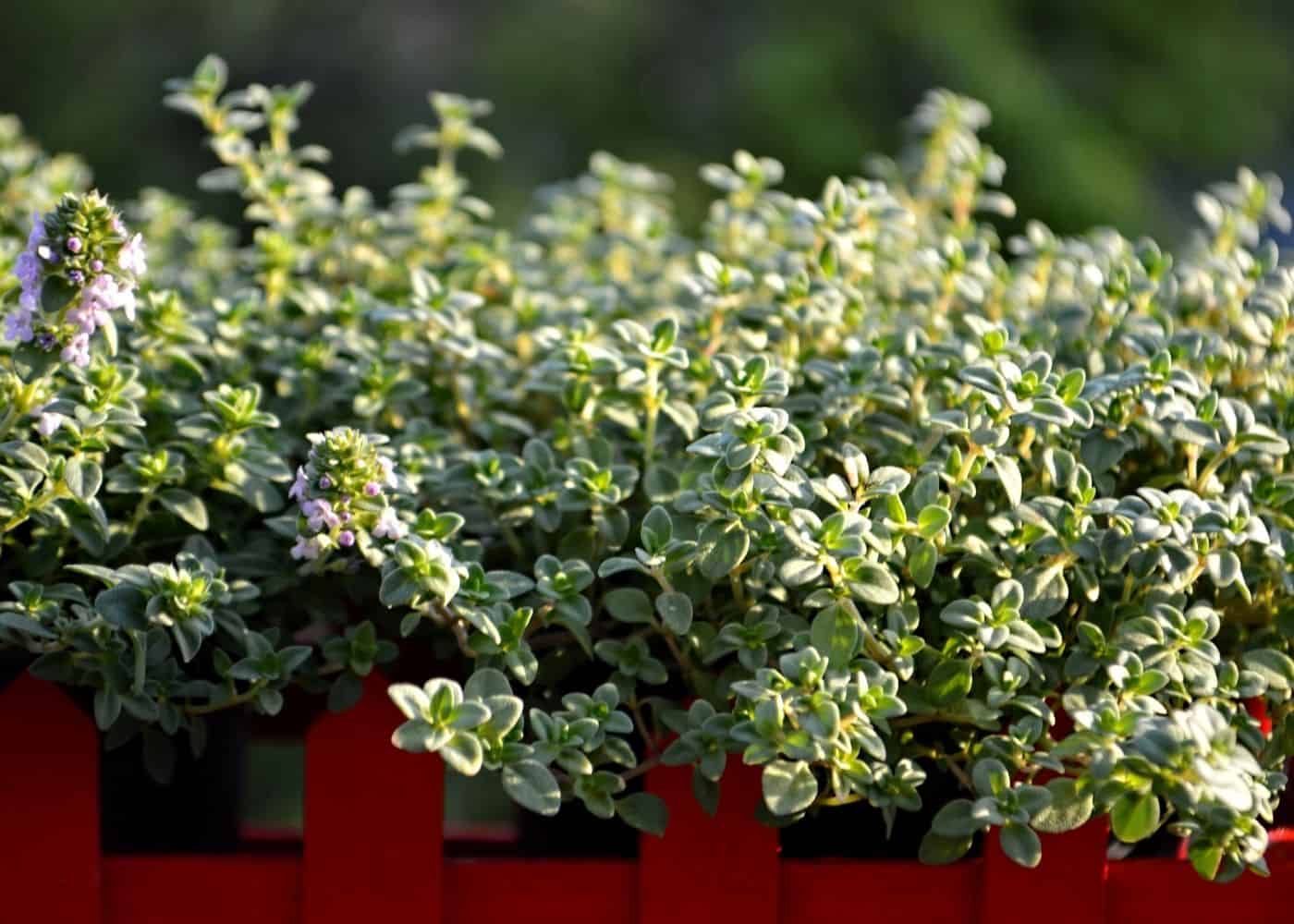
2. Thyme
Thyme is an excellent companion plant for potato plants because it keeps Armyworm Moths away. Armyworm Moths wreak havoc on potato plants by laying eggs that develop into larvae. These larvae eventually devour and kill the plant.
In addition, because thyme plants are so short, they make excellent groundcovers or living mulch. When rainwater splashes onto the potato plant’s leaves, the ground cover protects them, preventing soil-borne illnesses.
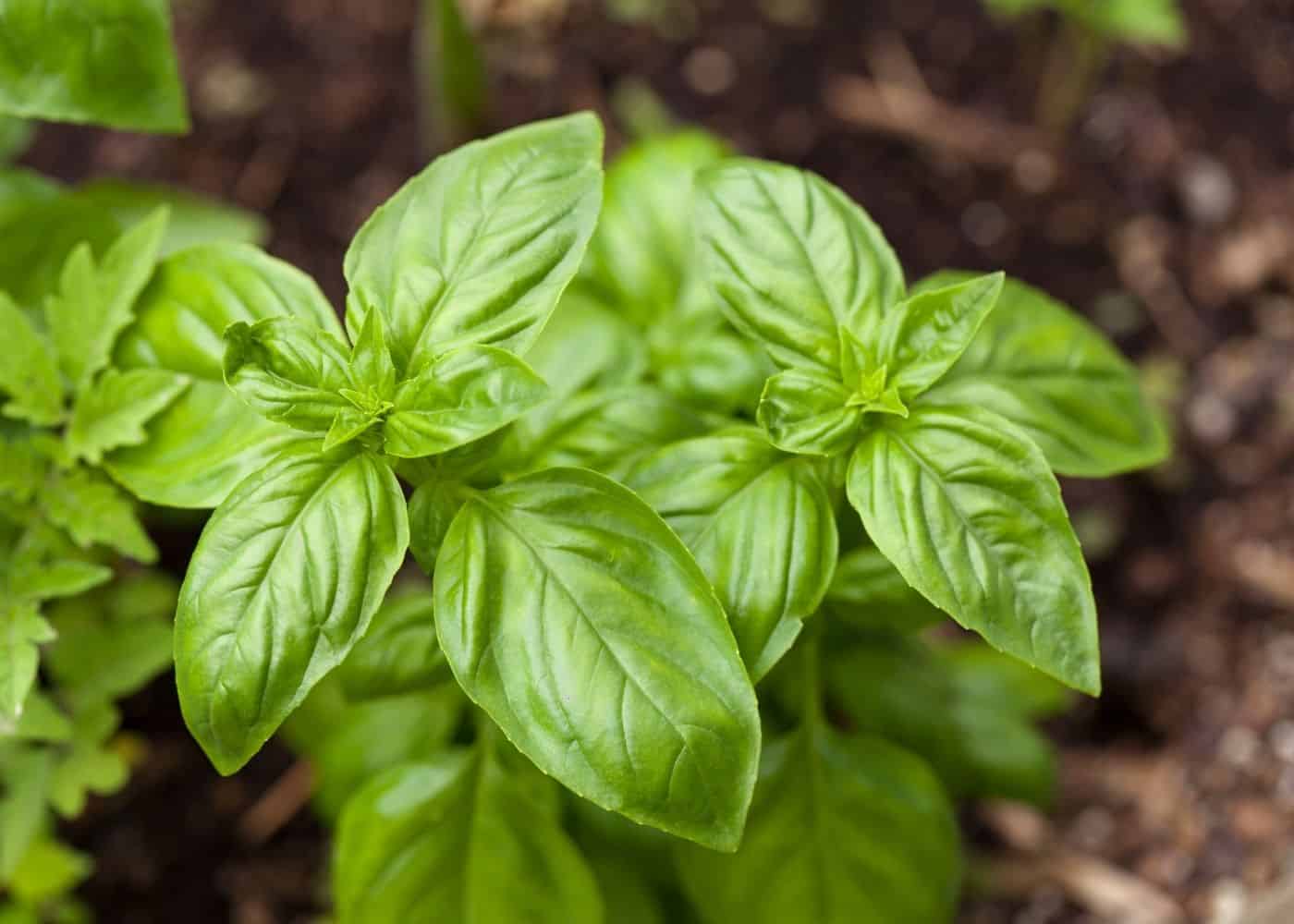
3. Basil
Basil is a great companion plant for potato plants because it contains a strong smell that masks the scent of the potato plant, preventing pests like thrips from finding and destroying the plant. In addition, basil helps improve the flavor of potatoes.
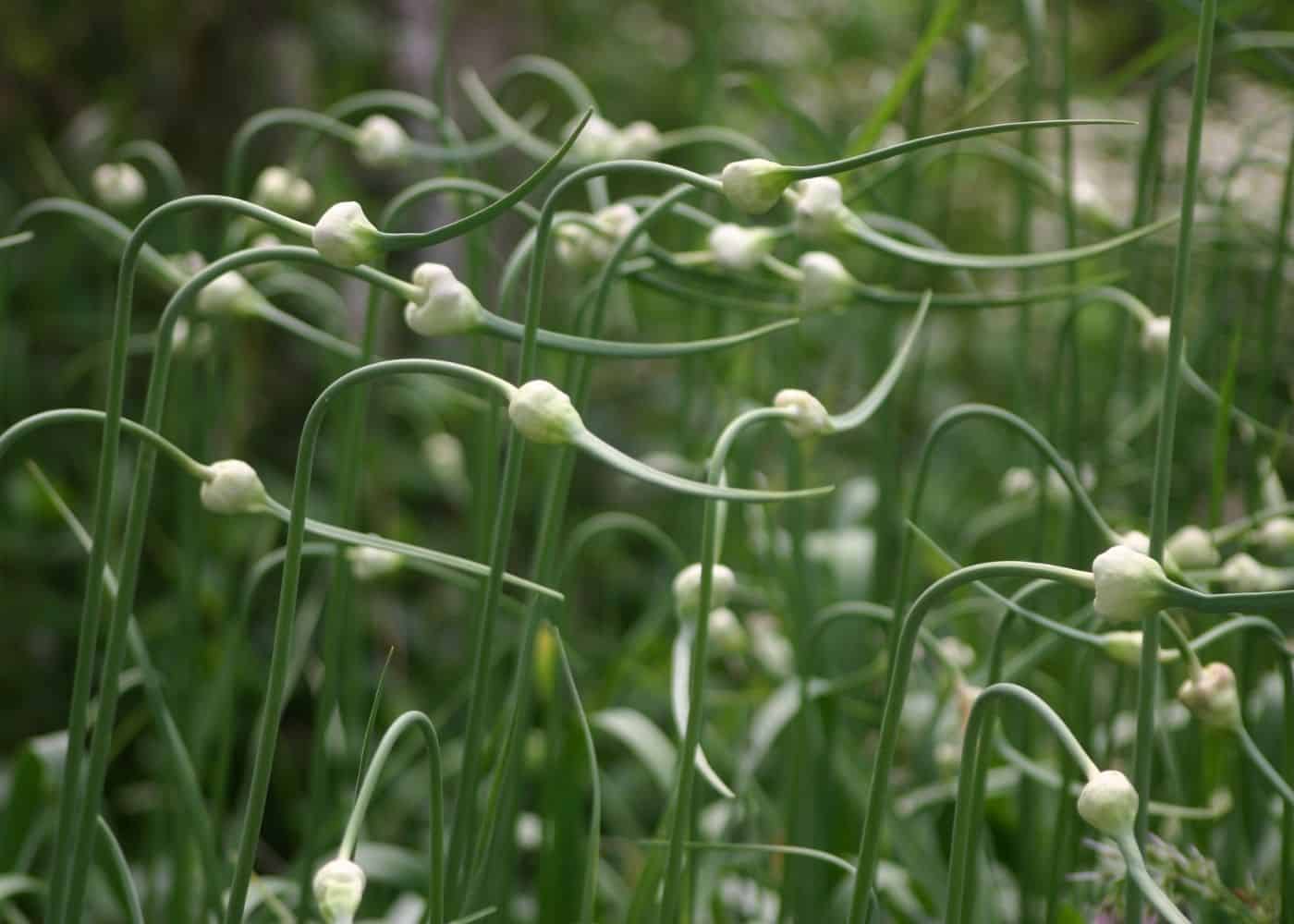
4. Garlic
Garlic helps repel mites, flies, and other harmful pests, making them excellent companion plants for potato plants. While garlic is usually harvested in early summer before the potatoes are at peak production, repelling these pests while the potato plants are young can prevent the pests from laying eggs in and around the potato plants, lessening the pest pressure on the potatoes in late summer and early fall.
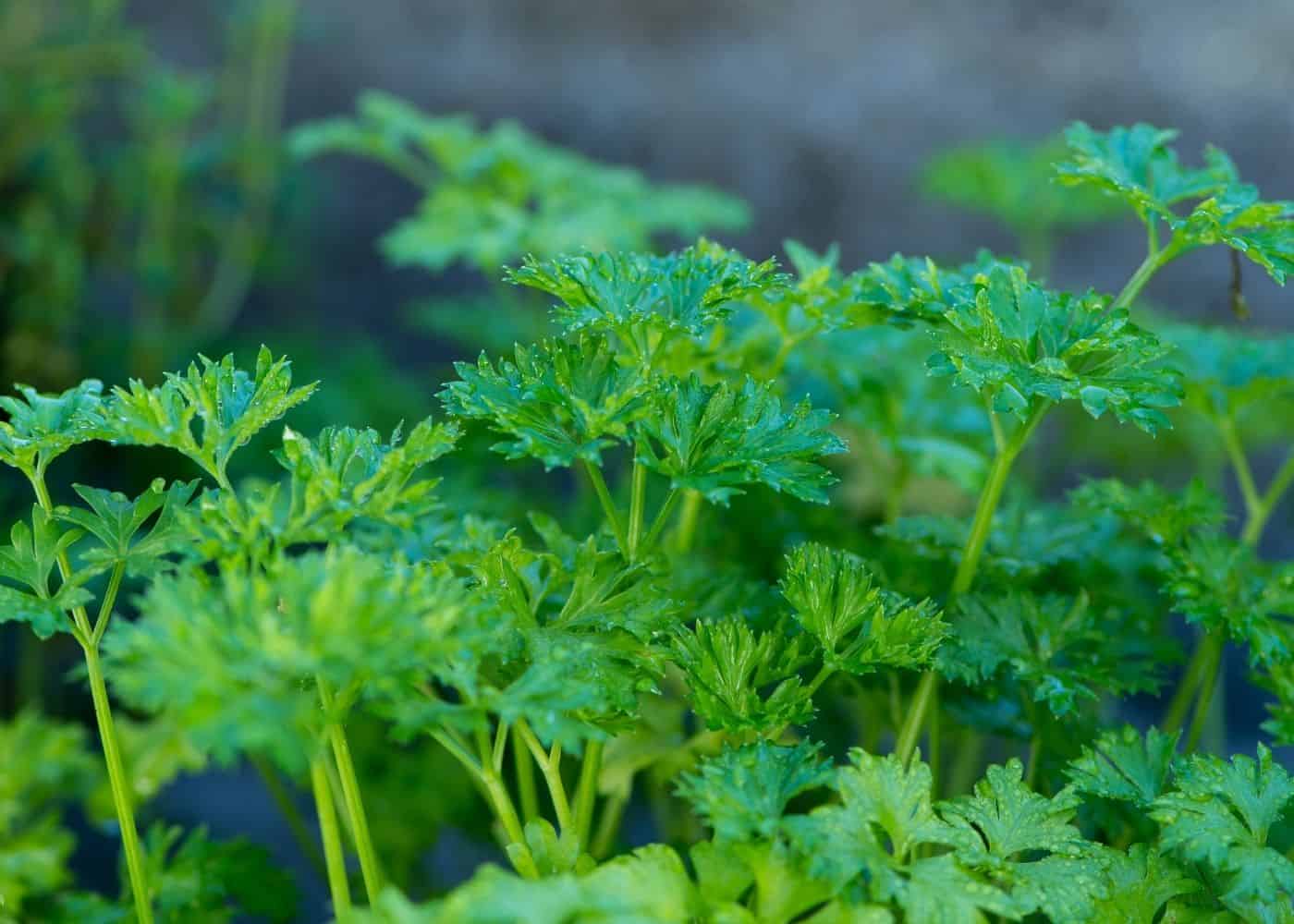
5. Parsley
Parsley deters pests such as aphids, spider mites, armyworms, earworms, and beetles, making it a perfect companion for potato plants. It’s also a mainstay of many potato salad recipes, making for a lovely little potato salad area of the garden.
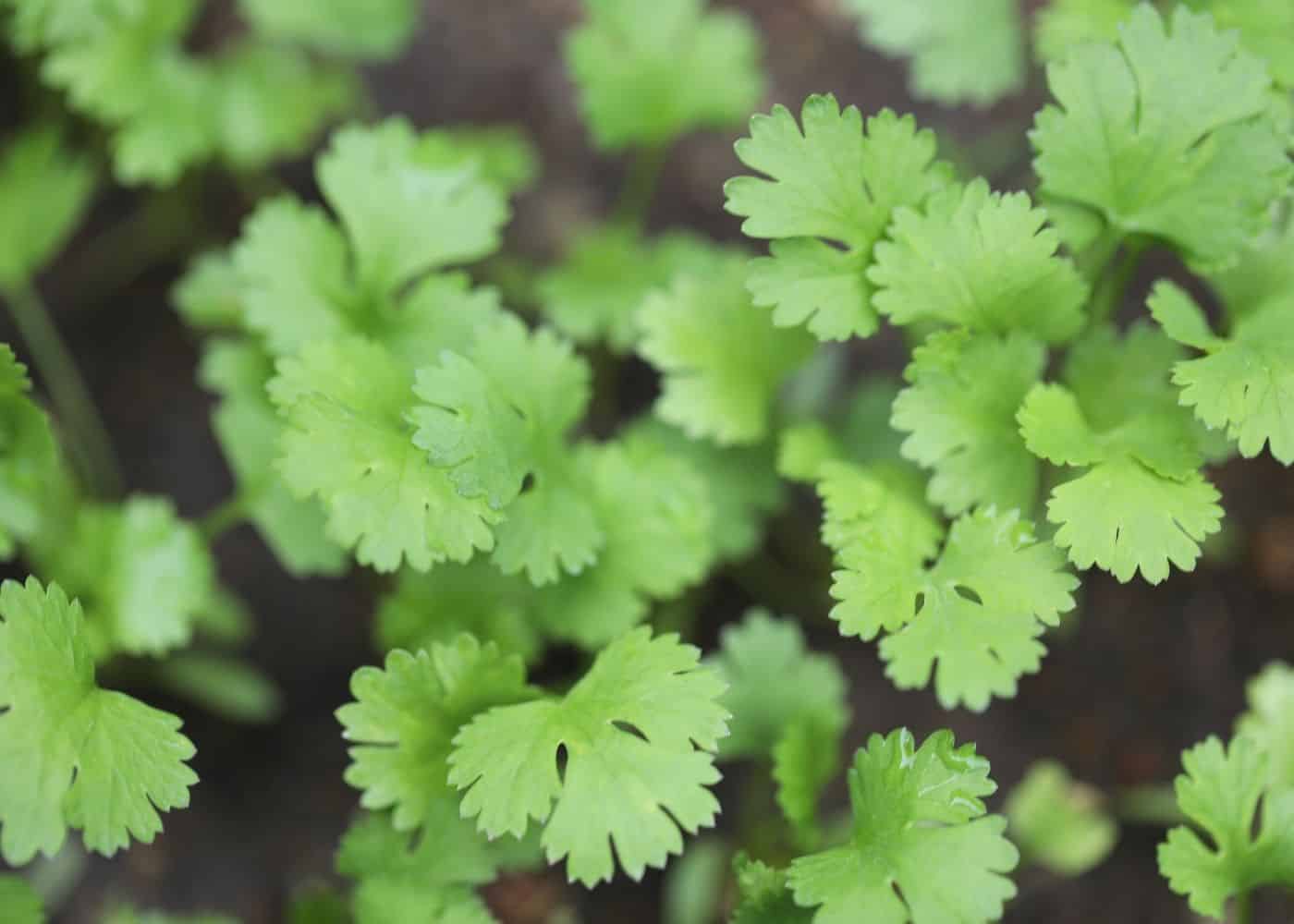
6. Cilantro
Cilantro is an excellent companion plant for potato plants since it repels pests like aphids and attracts bees when allowed to flower. As a result, the bees can pollinate both the cilantro and the potatoes. The cilantro can act as a ground cover between potatoes, and you’ll get coriander seeds as a bonus!
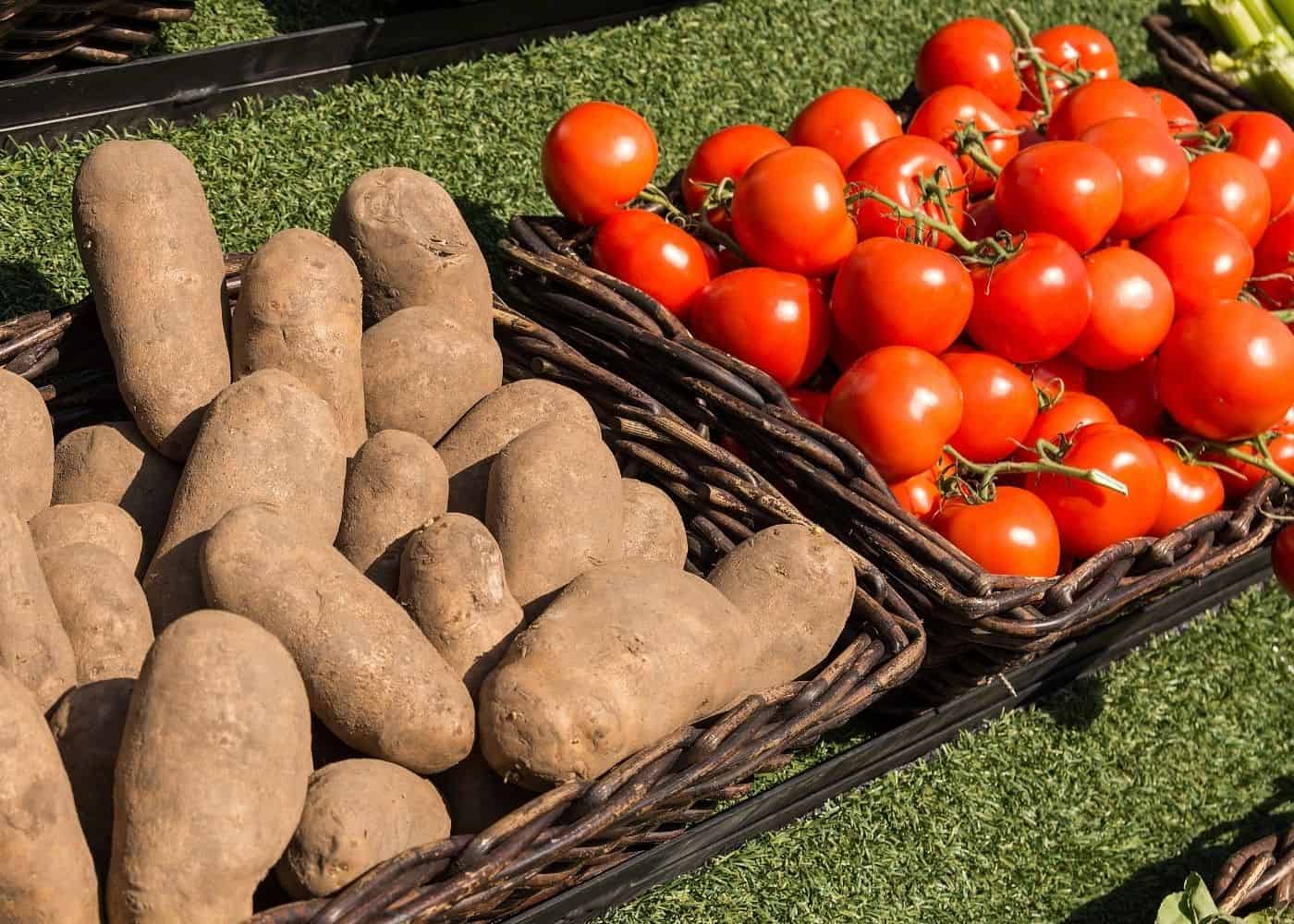
7. Tomatoes
Tomato plants and potato plants are very similar and make great companion plants for each other. They’re both members of the nightshade family and can even be grafted into one plant (usually called a “pomato“).
Keeping potatoes and tomatoes in the same area of the garden means they’ll both benefit from a full sun location and that year-to-year crop rotation is simplified as you don’t have to account for two different soil areas that have recently hosted nightshades (and some of the common soil-borne diseases that affect them).
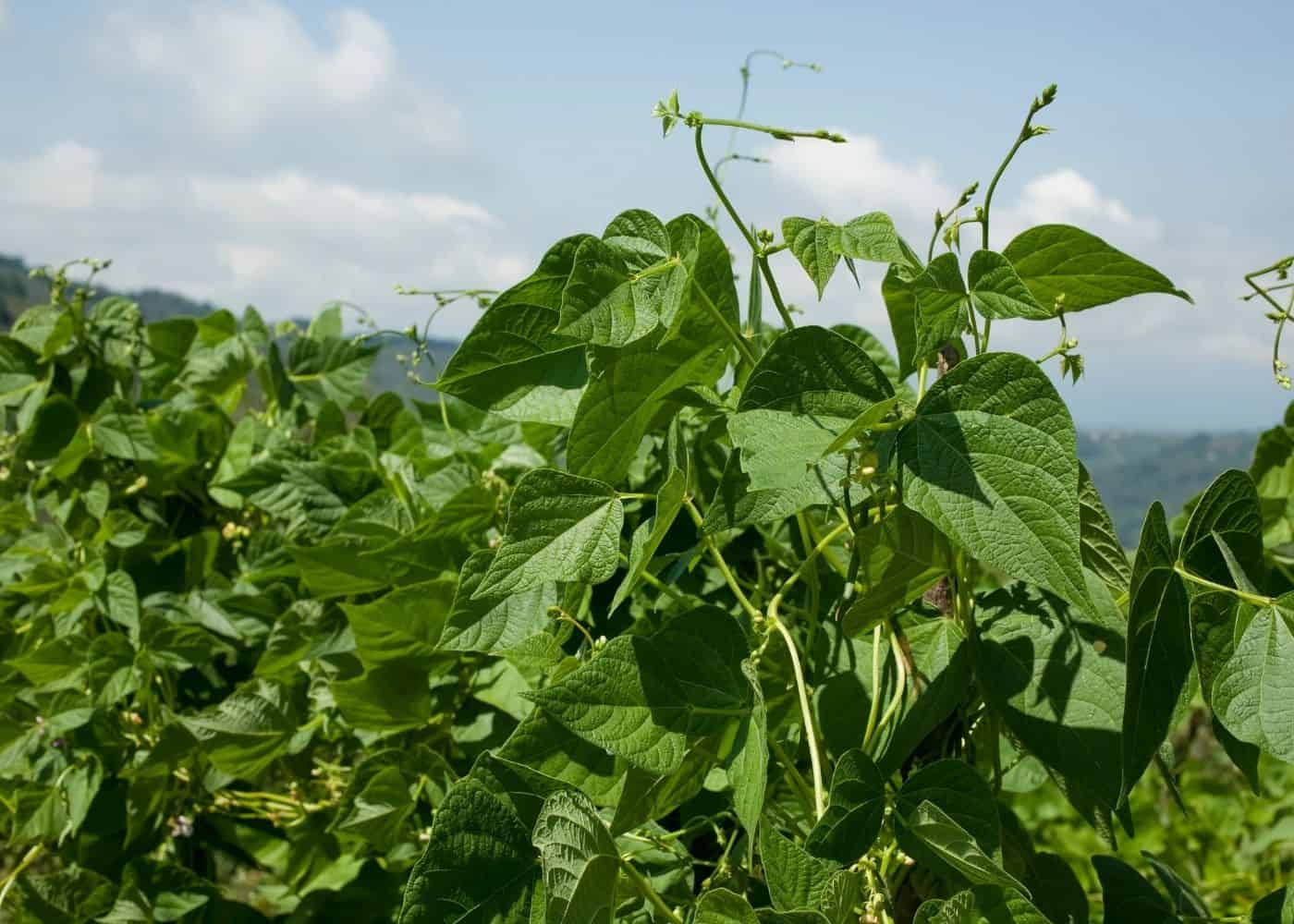
8. Beans
Beans are a great companion plant for potato plants since they attract beneficial insects to the garden. Bush beans are usually easier to grow around potatoes as they stay compact in the garden space. You could also grow pole beans up a trellis behind your potatoes.
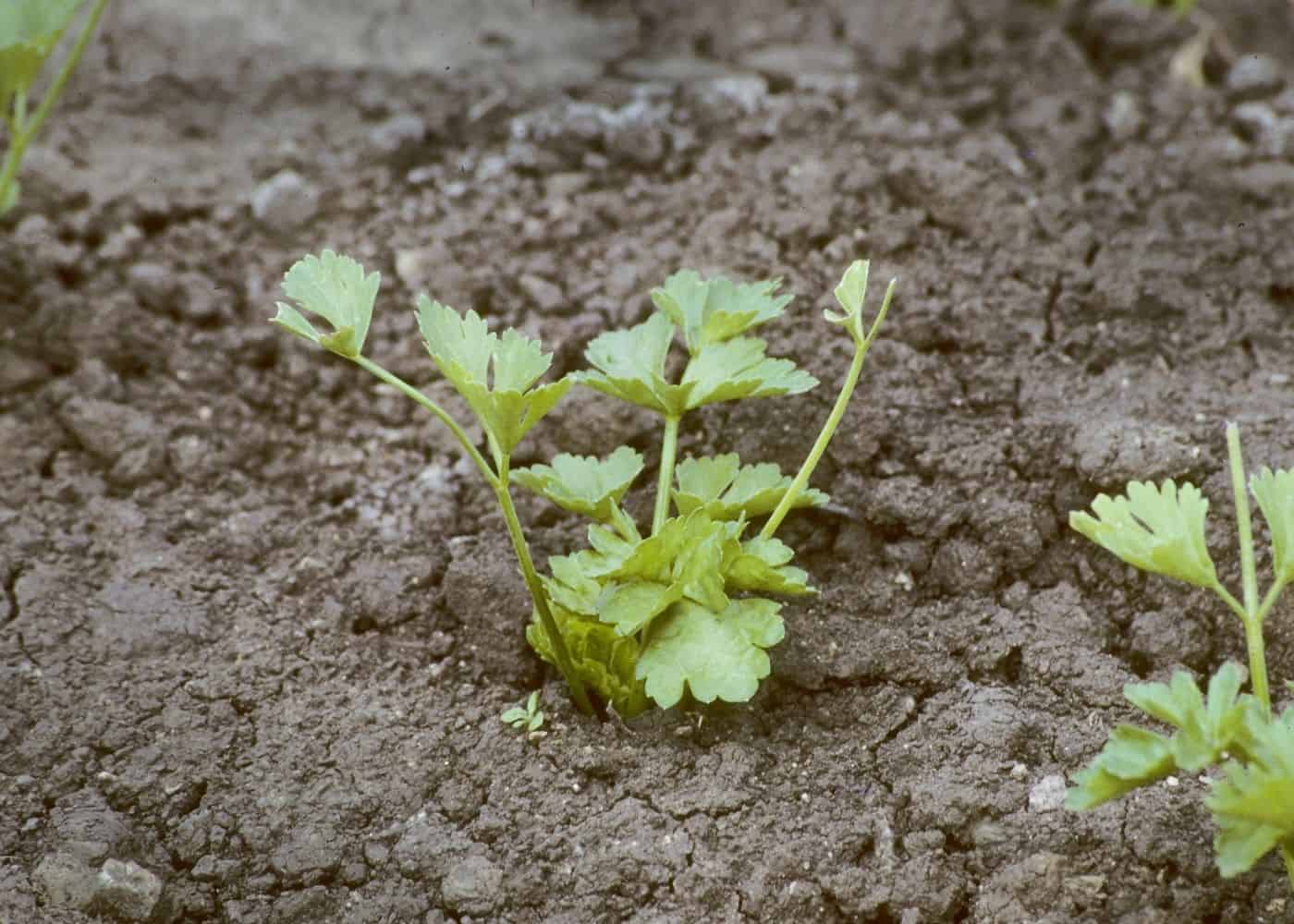
9. Celery
Celery plants in the garden are surprisingly fragrant and can repel garden pests like cabbage butterflies. These plants are also rather maintenance-intensive, meaning you’ll be in that area of the garden frequently which makes it easy to do some quick potato hilling while you’re in the neighborhood.
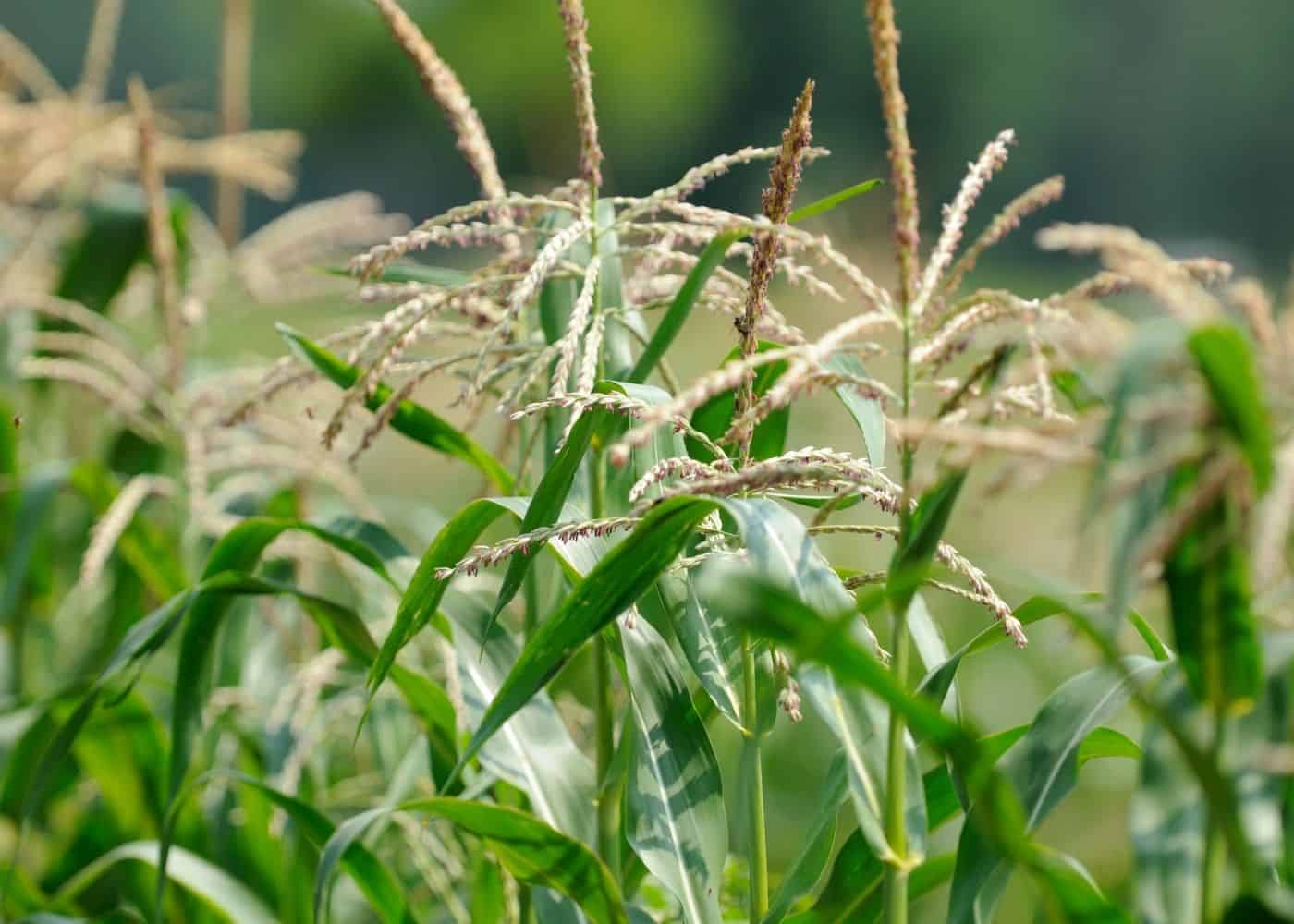
10. Corn
Corn is another staple garden crop that grows well beside potatoes. It is thought to decrease the risk of common soil-borne plant diseases like verticillium wilt and fusarium wilt. These sturdy plants are also somewhat tolerant to soil disruption beside them. Corn is a bit odd in the companion planting world as it is generally planted beside potatoes but not near other nightshades like tomatoes (or near celery).
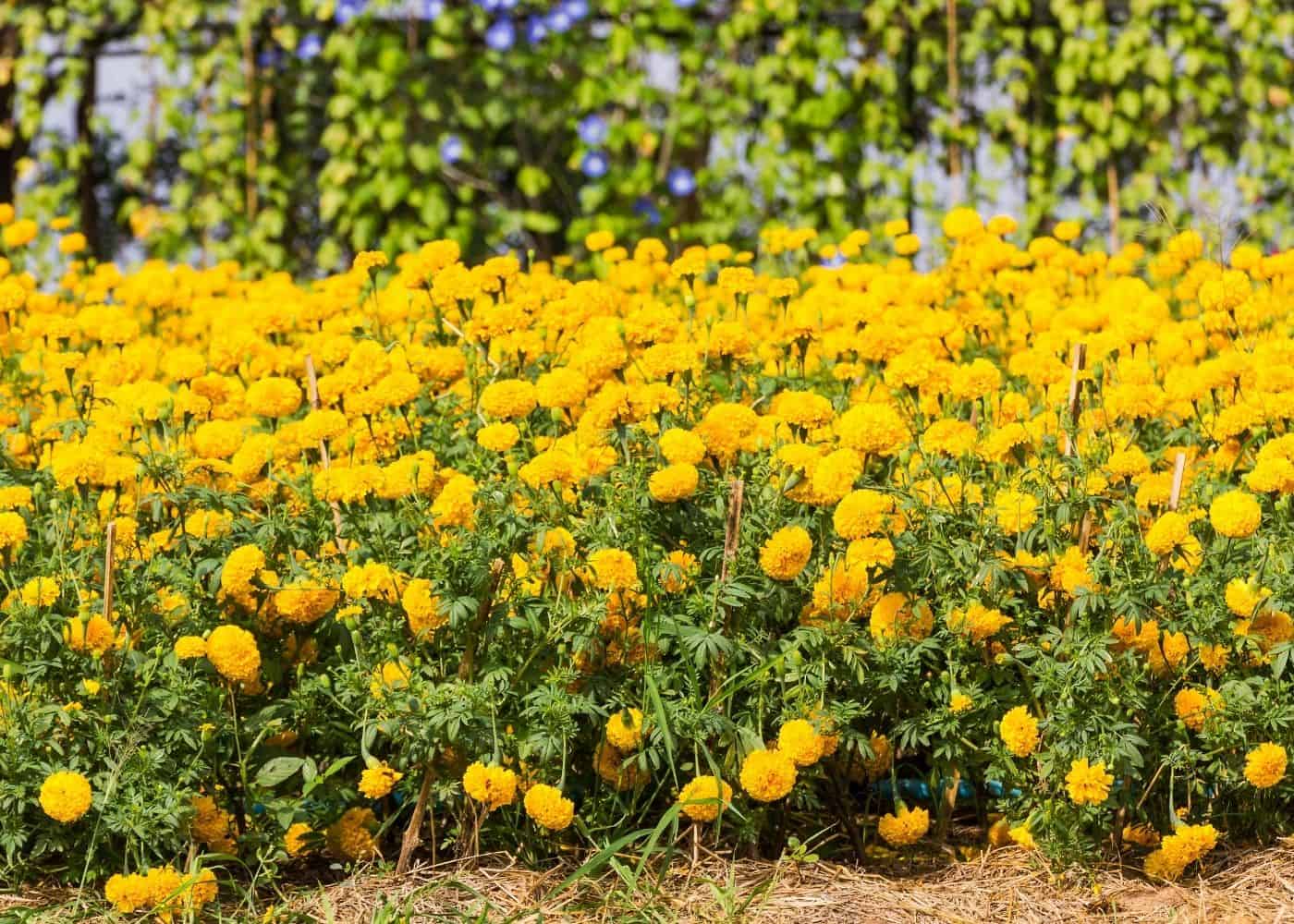
11. Marigold
Marigolds are excellent companion plants for potato plants since they help to keep nematodes at bay. Nematodes are tiny worm-like critters that attack the potato plant’s roots, often causing harm and potentially seriously harming the plant. Marigolds can also repel whiteflies from the garden while attracting beneficial insects like parasitic wasps and hoverflies.
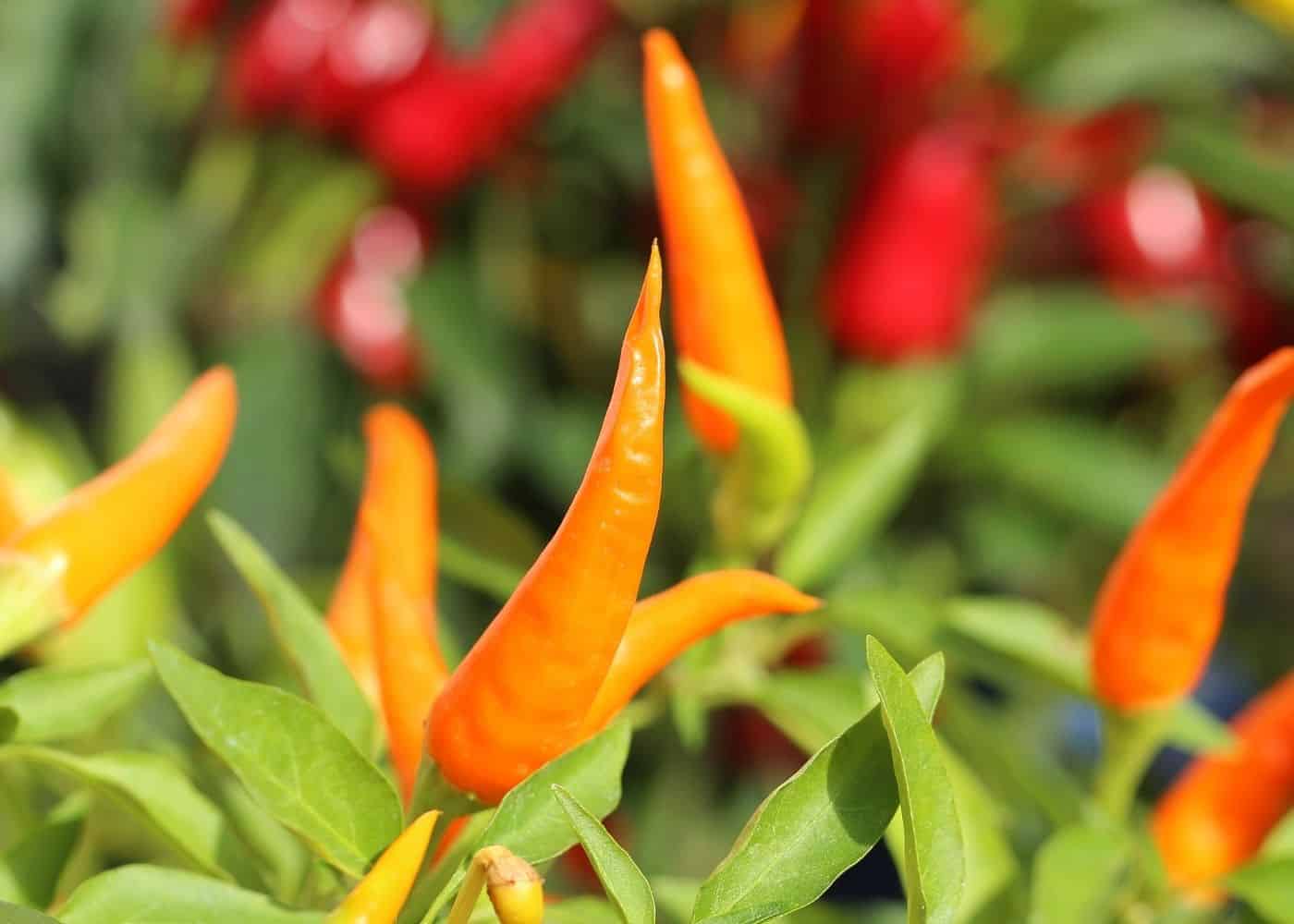
12. Peppers
Since pepper plants are nightshades, they make great companions for potato plants because they enjoy similar conditions. They also attract larger pollinators and potentially birds who may hunt harmful garden insects.
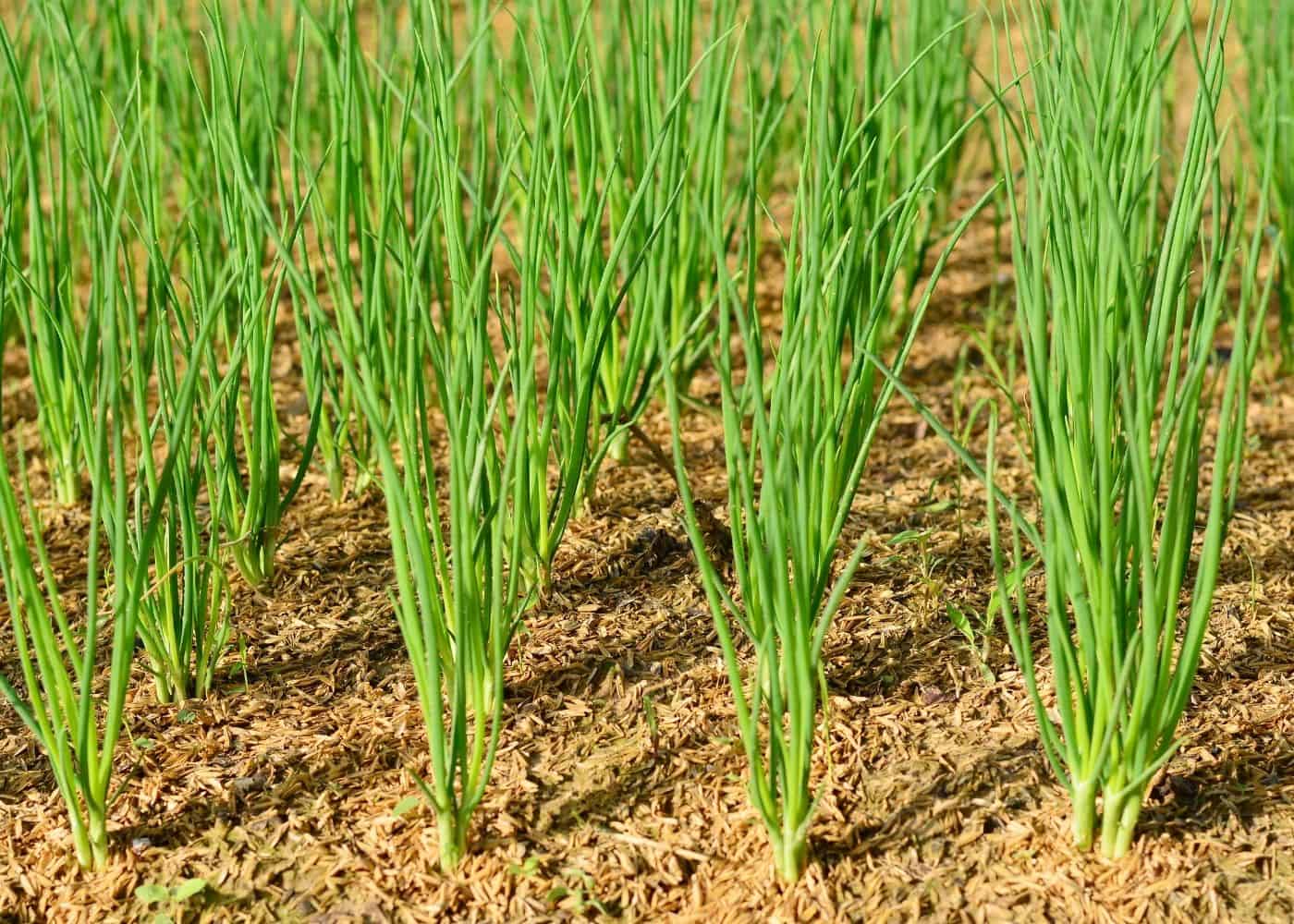
13. Onion
Onions and other members of the allium family repel aphids, cabbage worms, and slugs, making them excellent companion plants for potato plants (see also ‘9 Amazing Garden Plants That Repel Pests And Flies‘). The strong scent of these plants remains through the heat of summer when pest pressure on potatoes can be particularly intense, making them excellent neighbors.
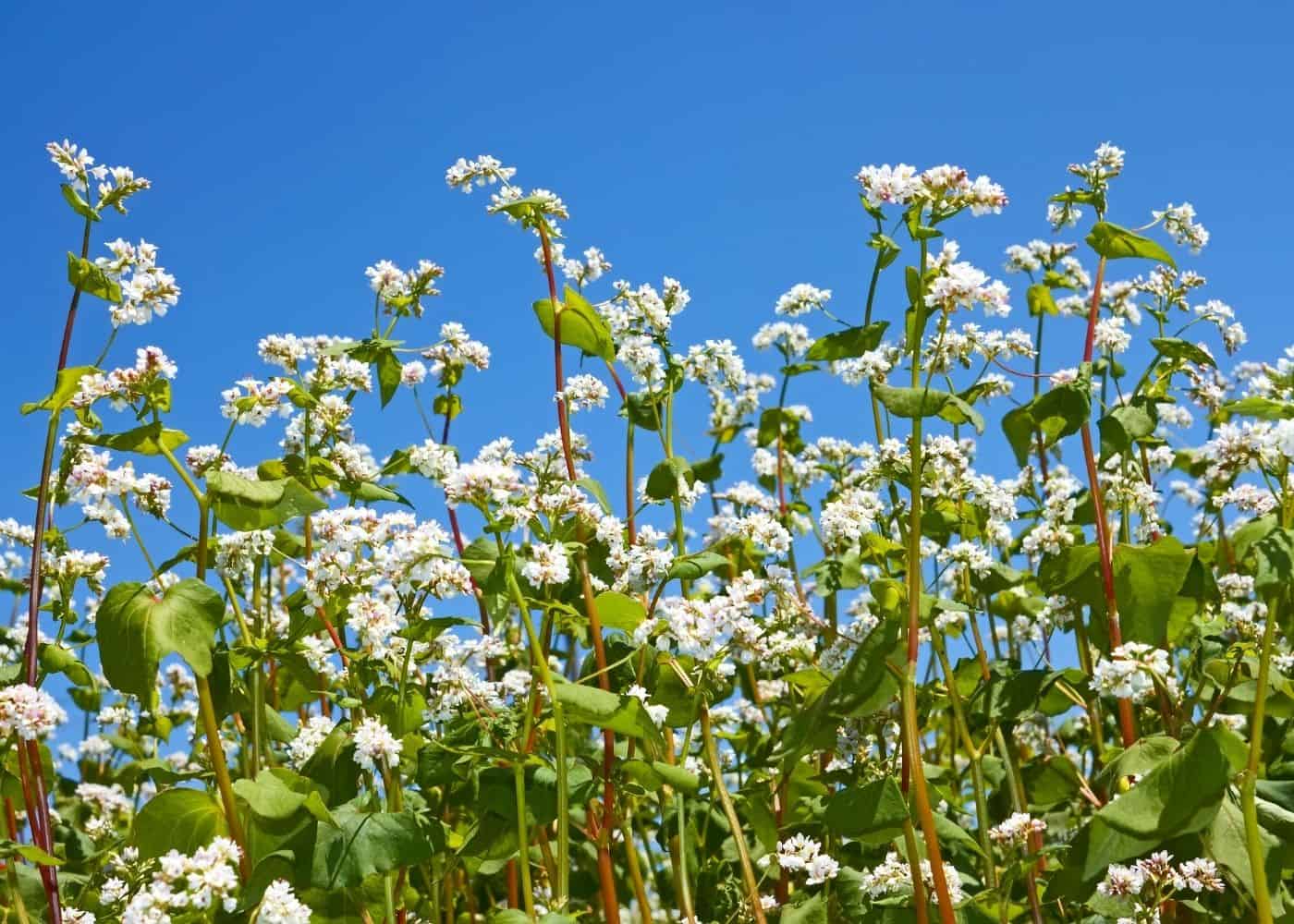
14. Buckwheat
Buckwheat is an excellent companion plant for potato plants since it serves as nutrient-rich compost. Buckwheat is a “cover crop,” which means its sole purpose is to cover the soil versus being harvested.
Before planting your potatoes, sow the buckwheat. You’ll want to do this 6-8 weeks before planting your potatoes. When your buckwheat plant starts sprouting flowers, cut the plant down to the soil line. If you allow it to sprout seeds, it has the potential to take over the entire garden. After sowing the buckwheat, cut it up, and leave it on top of the soil to provide nutrients for your future potato plant.
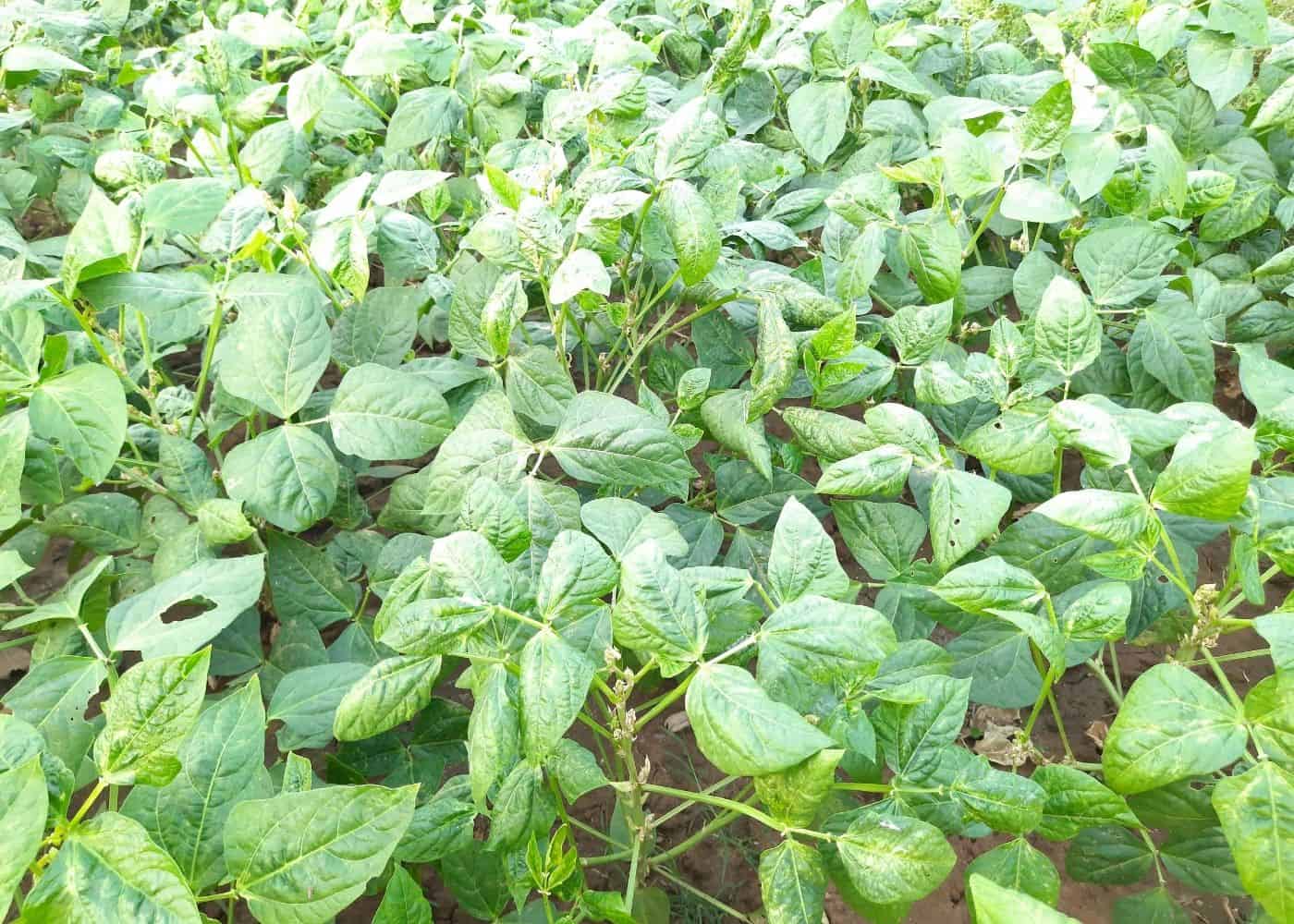
15. Cowpeas
Cowpeas are an excellent companion plant for potato plants because they help to keep pests like the Green Stink Bug at bay. Cowpeas are highly attractive to Green Stink Bugs, and they prefer them to potato plants. If you notice a few Green Stink Bugs on your potato plant, remove them and place them in a bowl of soapy water.
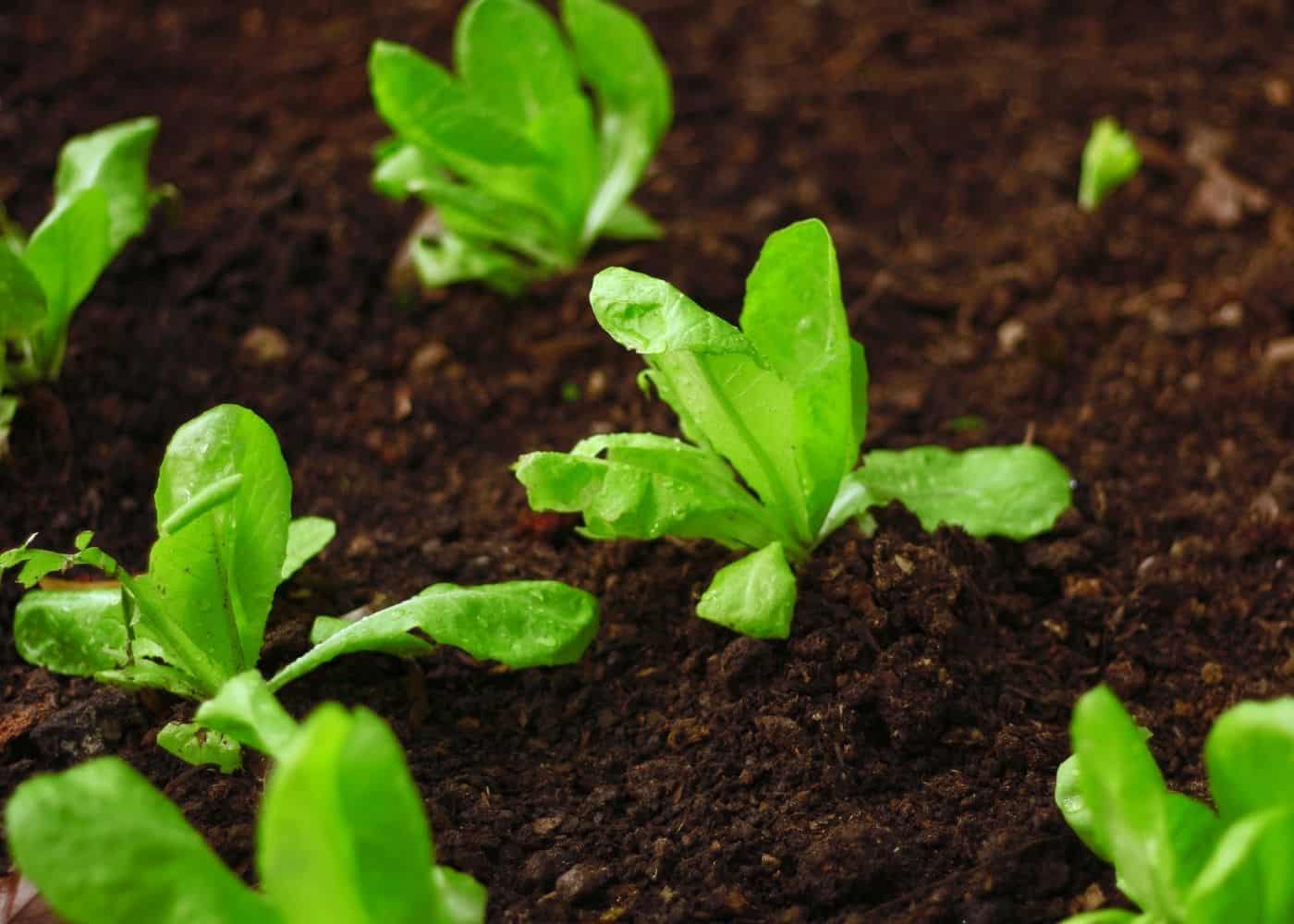
16. Lettuce
Lettuce is a small, relatively unobtrusive plant that’s easy to tuck around potato plants. Lettuce has shallow roots that won’t compete with the potato plants for space and nutrients (which is key for potato production). Lettuce is also very quick to grow, meaning it can be successively sown even while potato hills are being created nearby.
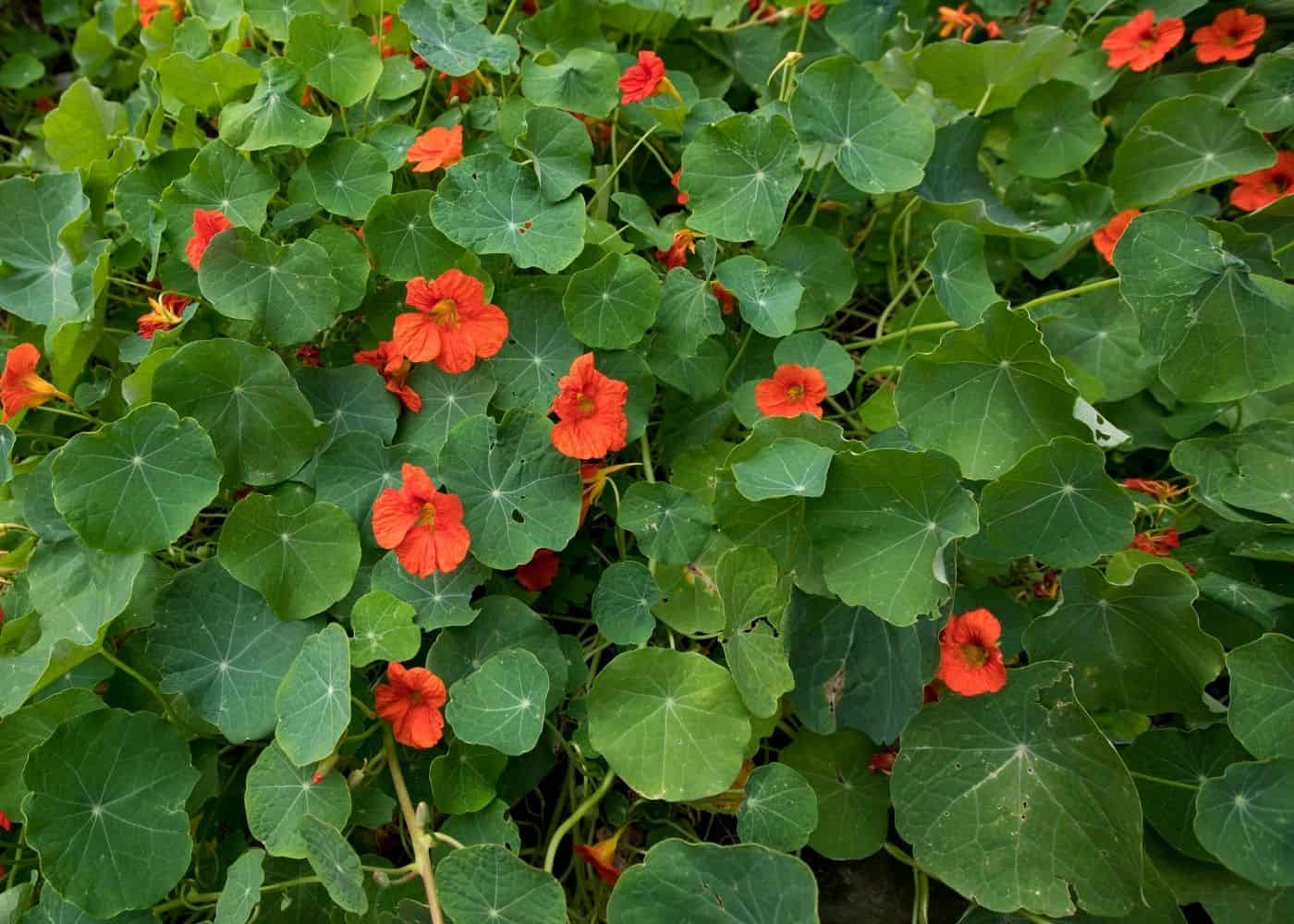
17. Nasturtium
Nasturtium prevents aphids from attacking your potato plant because Nasturtium is highly attractive to aphids. This “trap” plant is used to distract aphids away from potatoes and other target plants in the garden. The spicy, pepper-like scent may also deter harmful flying insects.
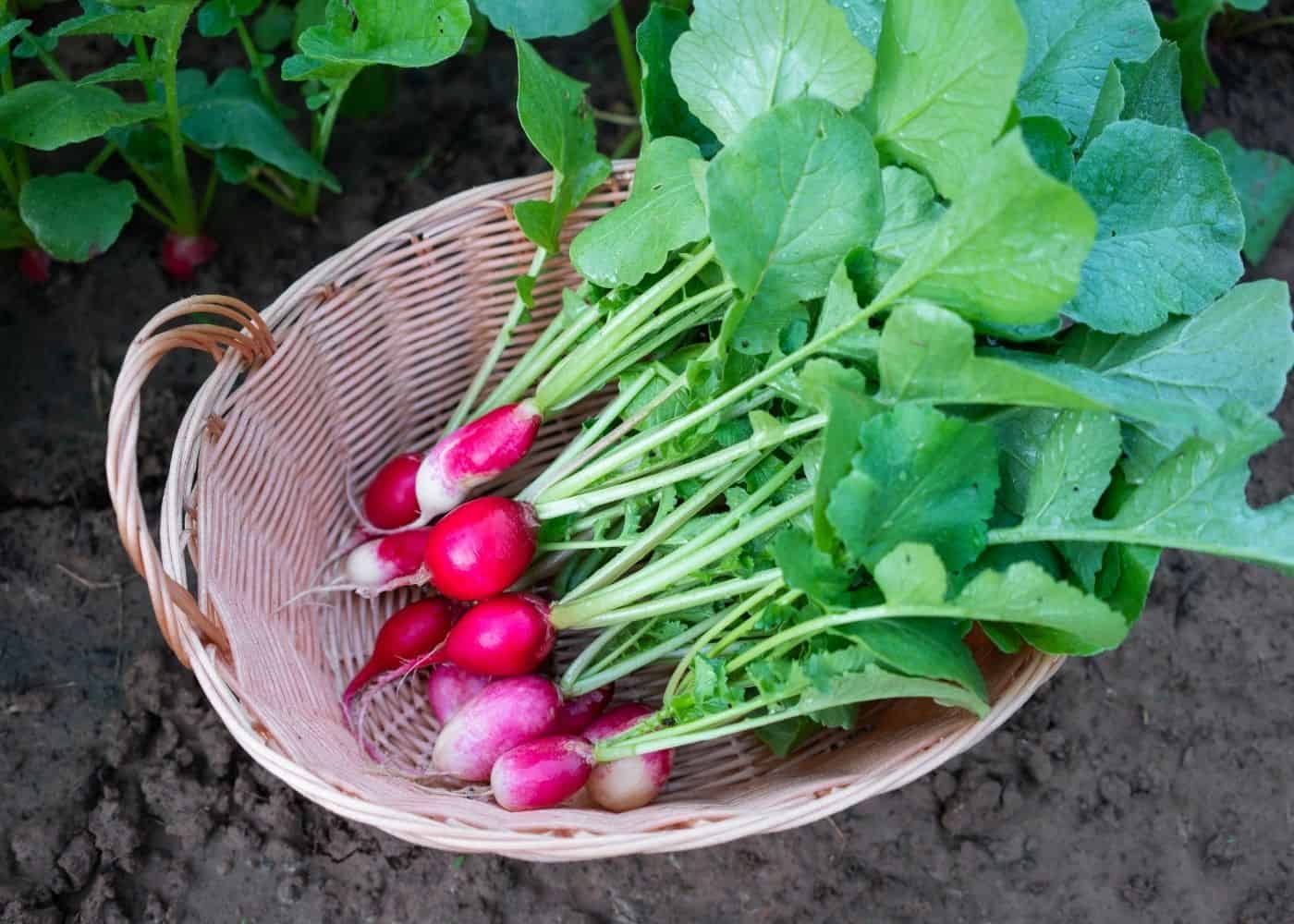
18. Radishes
Because they attract flea beetles, radishes make excellent companion plants. Planting radishes near your potato plant, for example, can keep flea beetles from eating the potato plant’s leaves since they will eat the radish leaves instead.
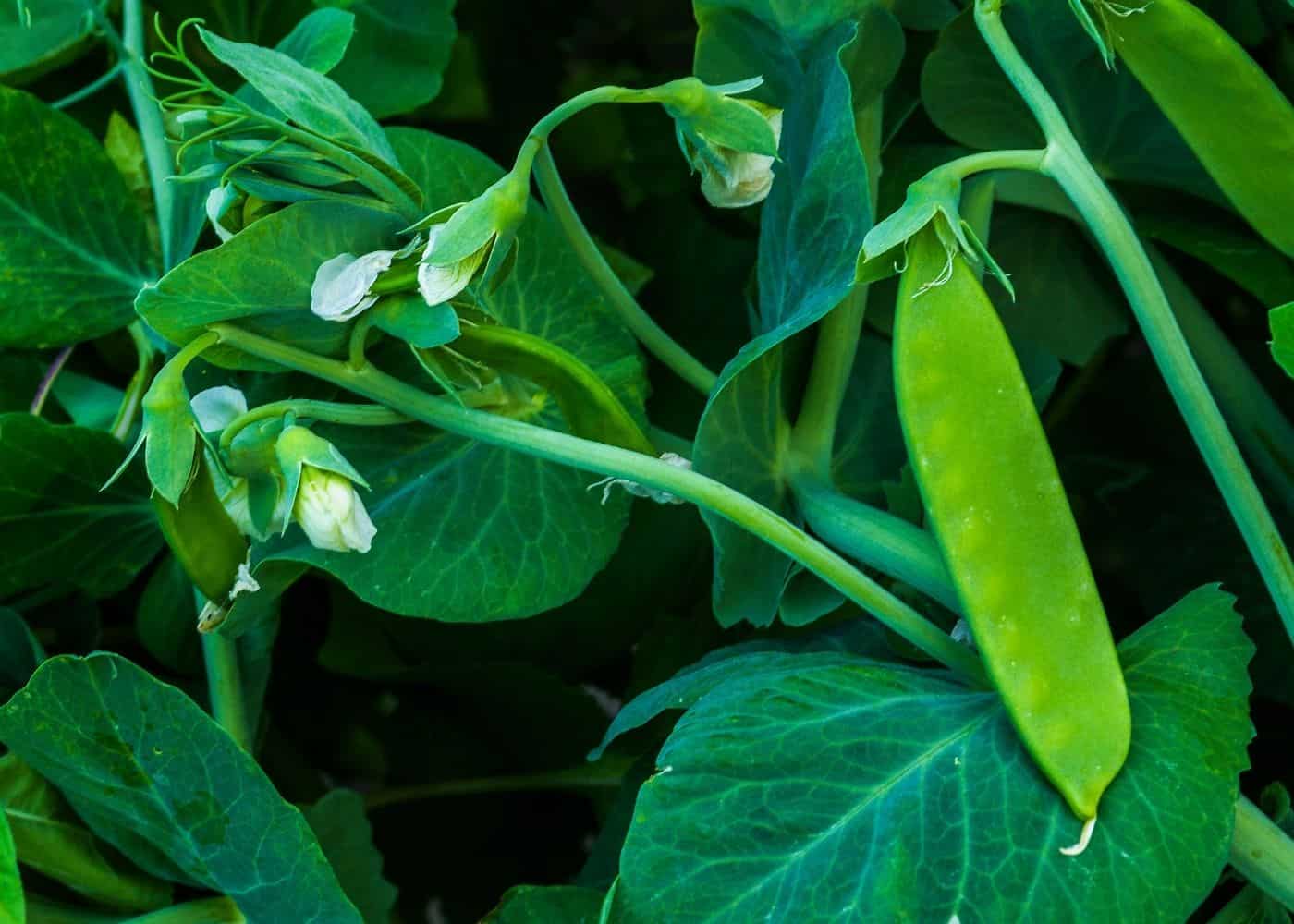
19. Peas
Peas are an excellent companion plant for potato plants since they enrich the soil with nitrogen before the potatoes are planted. Nitrogen is beneficial to potato plants and is a necessary macronutrient for leaf development.
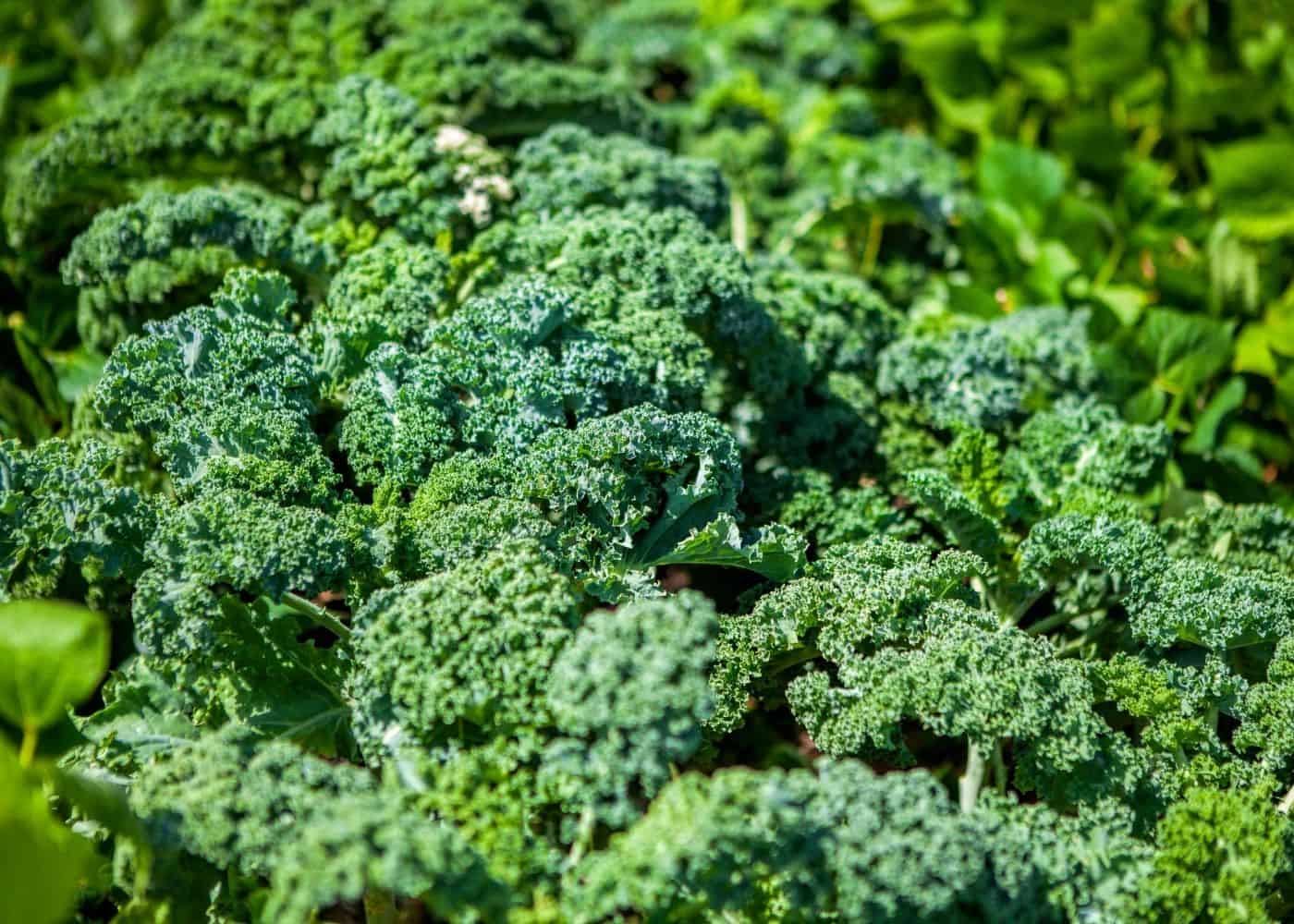
Bad companion plants to avoid planting near potatoes
The worst companion plants for potato plants are kale, broccoli, cauliflower, brussels sprouts, cabbage, collards, fennel, and kohlrabi.
Kohlrabi, for example, can restrict the growth of potato plants. Cole crop plants such as brussels sprouts, cabbage, broccoli, etc. (brassica family) are harmful to potato plants.
Mature fennel plants can also hinder the development of potato plants. Swallowtail butterflies, which lay eggs on potato plants, are also attracted to fennel. As a result, when the eggs hatch, they transform into caterpillars that feed on nearby potato plants.
What can you not plant next to potatoes?
Avoid planting potatoes nearby brassicas, carrots, and squash. You may also wish to avoid planting them near fennel and dill.
Resources
- A Beginner’s Guide to Spring Garden Planning
- Get my free garden planner here!
- Want garden tips, updates, and freebies? Sign up for my newsletter
- My favorite things for the vegetable garden
- Visit my shop
- Watch my YouTube playlist about growing annual veggies
- Follow Me on Pinterest for Up-to-Date Gardening Tips
References
Companion planting, West Virginia University
More vegetable plants for your garden
Wondering what else would thrive in your garden? Check out these posts about vegetable gardens!


